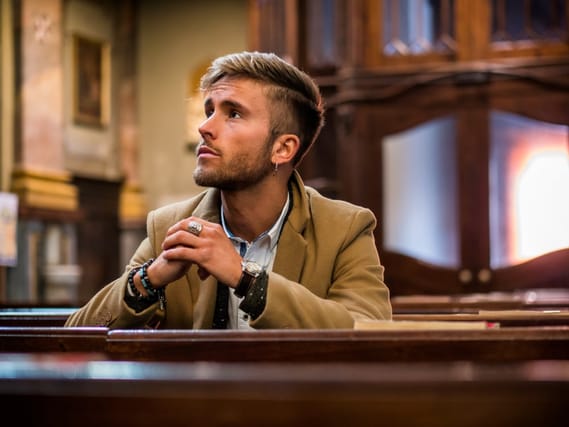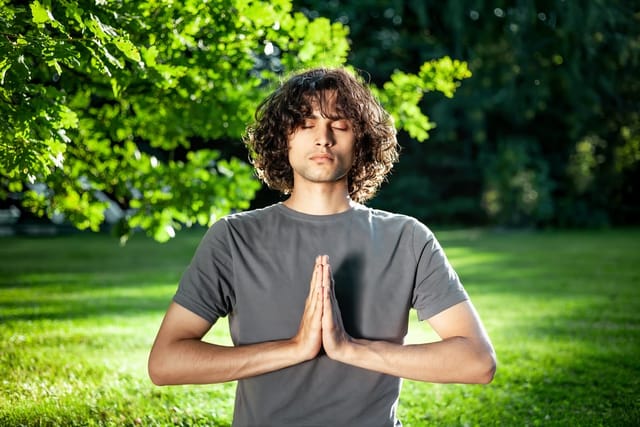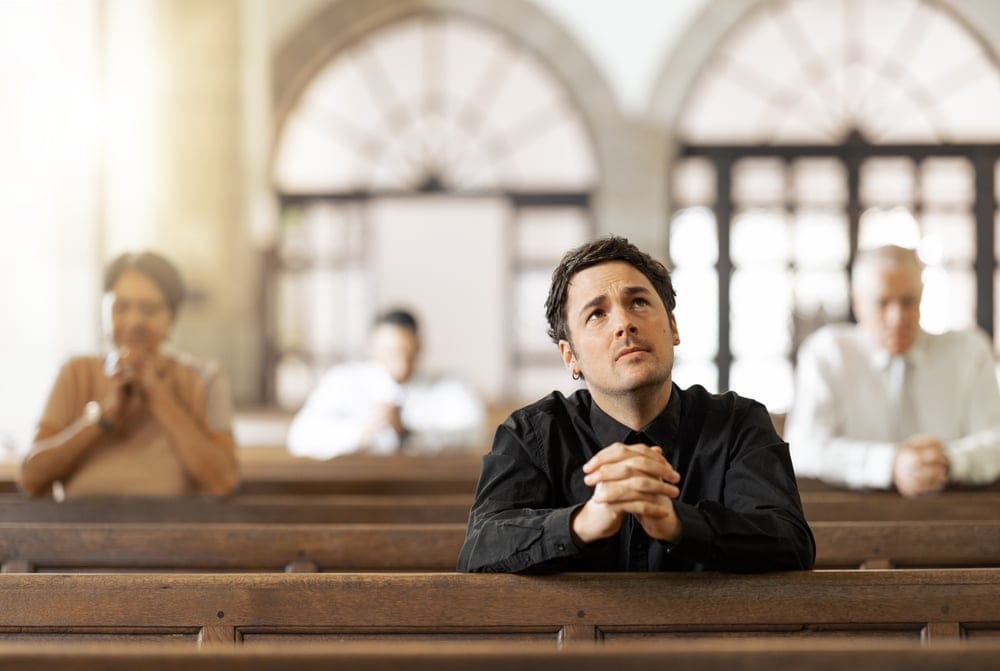Talking about religion can get intense pretty quickly, and we’re definitely not hear to bash anyone’s beliefs.

However, it’s undeniable that fewer people identify as religious these days, especially younger generations. According to data from 41 different countries compiled by the Pew Research Center, the younger you are, the more likely you are to be a person of faith. This isn’t just rebellion; there are some major shifts happening in how people find meaning and connect with something bigger than themselves. Here’s why that might be happening.
1. Strict rules and dogma feel incompatible with modern life.

Many religions were formed centuries ago, with rules reflecting those times. Today, people crave more autonomy, and being told “this is how you must live” feels oppressive. The desire for personal choice – whether it’s about sexuality, gender roles, or even what to eat – often clashes with rigid religious doctrine. People just aren’t feeling it anymore, and who could blame them?
2. Science offers answers that were once solely religion’s domain.

The Big Bang vs. Creationism is just one example. Advancements in neuroscience, evolutionary biology, etc., challenge faith-based explanations of how the world works. For many, especially people with super analytical minds, objective evidence carries more weight than strictly believing something because a holy book says it’s true.
3. Increased exposure to different cultures and beliefs creates confusion.

The interconnected world means learning it’s not just “my religion is right, everyone else is wrong.” Exposure to different belief systems makes people question the idea that theirs holds the absolute truth. This can be unsettling, but it can also lead to a broader understanding of spirituality outside one specific box.
4. Many can’t reconcile the concept of a loving God with the amount of suffering in the world.

“If God’s all-powerful, why do children die of cancer? Why did that genocide happen?” These aren’t new questions, but with widespread, instant news of the world’s horrors, they become impossible to ignore. For some, blind faith in a benevolent higher power when there’s so much pain just doesn’t make sense. I’ve been there myself at times, so I get it.
5. Organized religion’s hypocrisy is a major turn-off.

Scandals within various churches, leaders preaching love while living lavishly — these things destroy the ability to trust these institutions. People see these institutions as focused on power and wealth, not true spiritual guidance. This hypocrisy fuels cynicism, making it hard to believe that any organized religion has their best interest at heart.
6. Atheism offers freedom from guilt and fear-based control.

The idea of eternal damnation, or being inherently sinful simply because you’re human, weighs on people. Atheism rejects these concepts. It’s about focusing on the here and now, living an ethical life because it’s the right thing to do, not out of fear of divine punishment. It makes for a much more peaceful daily life than constantly worrying if you’re going to do something that condemns you to an infinite amount of suffering one day.
7. People find community and support outside of traditional churches.

That sense of belonging, once found primarily in religious spaces, is now fulfilled secularly. From fitness groups to online forums on niche interests, human connection exists everywhere. The idea that you must find your tribe solely within a shared faith feels outdated to a lot of people, largely because it is these days.
8. Finding spirituality without formal religion is increasingly common.

Maybe it’s through nature, meditation, a focus on kindness, or the wonder of the universe. This individualized spirituality provides meaning without needing the trappings of organized religion. It prioritizes the personal, inner journey over external rules and rituals.
9. Some religions feel outdated in their views on social justice issues.

The fight for LGBTQ+ rights, women’s equality, and racial justice often finds opposition, not support, from major religious institutions. This stance alienates people who believe love is love, and that everyone deserves equal rights, regardless of what an ancient text might say.
10. Questioning faith has become less taboo.

With online access to info, it’s easier to research religious history, compare different belief systems, or find communities of fellow doubters. The fear of being ostracized is reduced – there’s strength in numbers, even virtual ones. This open questioning wasn’t always encouraged, or even safe, in the past.
11. “Nones” (no religious affiliation) are now the fastest-growing group.

This signals a major cultural shift that’s worth paying attention to because it’s meaningful. According to NPR, “Nones” are the biggest single group in the U.S. as of 2024. It’s increasingly acceptable to say “I’m not religious” without judgment. As more people do, it normalizes the choice, especially for younger generations who aren’t raised with religion as the assumed default.
12. Emphasis on individuality makes atheism feel less isolating than it once was.

It’s okay to do your own thing now. Atheism isn’t about joining a specific group with its own set of beliefs, but rather, freedom to chart your own course. This focus on the individual resonates in a culture that celebrates self-expression and carving out your unique path.
13. Scandals and cover-ups have shattered trust in religious authorities.

From widespread abuse cases to mishandled funds, these betrayals are impossible to ignore. When those meant to be moral beacons are exposed as deeply flawed humans (or worse), it makes people distrustful of the whole system, not just the specific individuals who committed the crimes.
14. Modern life is busy, leaving less time for formal religious observance.

Hectic schedules, the pressures of career and family — for many, adding regular services or strict religious routines feels overwhelming. Atheism doesn’t demand set days or hours of devotion. It can be integrated more seamlessly into already jam-packed lives.
15. Some find religious texts contradictory or simply hard to believe.
 Shutterstock
Shutterstock
Talking snakes, virgin births, miracles… the list goes on and on, and the more these are scrutinized with a critical eye, the more difficult it becomes for some to take them literally. Atheism doesn’t require accepting things that don’t align with your reason or understanding of how the world works.
16. The rise of secular ethics fills a void.

You don’t need religion to know right from wrong. Humanism, focused on empathy, compassion, and critical thinking, provides a framework for ethical living without invoking a higher power. Seeing positive change made through secular organizations makes it clear religion doesn’t own the corner on being a “good” person.
17. Find love with the power of your mind — our sister site, Sweetn, shows you how.

Take their fun quiz and try their research-powered tools to transform your love life in weeks. They’ll help you change your perspective on love and relationships and restore your belief that your ideal partner is out there. Click here to start.



